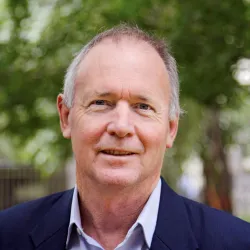Emeritus Professor Anthony Jakeman

Content navigation
About
Tony Jakeman is an Environmental Scientist and Modeller with over four decades of experience and over 450 publications in open literature, half of these in refereed international journals. Tony was instrumental in the establishment of the Institute for Water Futures and also leads the Integration and Decision Support Program of the National Centre for Groundwater Research and Training. Throughout his career, he has been a principal supervisor to over 60 graduated PhD students abd us regularly on the most highly cited researcher list by Thomson Reuters (top 1% Computer Science). Since 1997 he has directed the iCAM Centre, pursuing methods and applications of integrated assessment and decision support on water resource issues. Through his work with iCAM, he has pioneered the development of integrated assessment methods and decision support systems for water and associated resource problems, including modelling and management of water supply and quality problems in relation to climate, land use and policy changes and their effects on biophysical and socioeconomic outcomes. In 2012 he was presented the Ray Page Lifetime Achievement Award by Simulation Australia. In 2011 he was awarded the Silver Medal of Masaryk University. In 2016 he was elected Fellow of the American Geophysical Union. He has held visiting positions at Stanford, Cambridge and Lancaster Universities, CSIRO, Cemagref/IRSTEA in France and the US Geological Survey.
Whilst Australia is besieged by socio-environmental issues in the water sector, there are also substantial opportunities of national and local benefit to explore. It has the interdisciplinary scientific know-how to bring interest groups together to generate and share the knowledge that will allow us to anticipate, shape and adapt to an uncertain water future.
